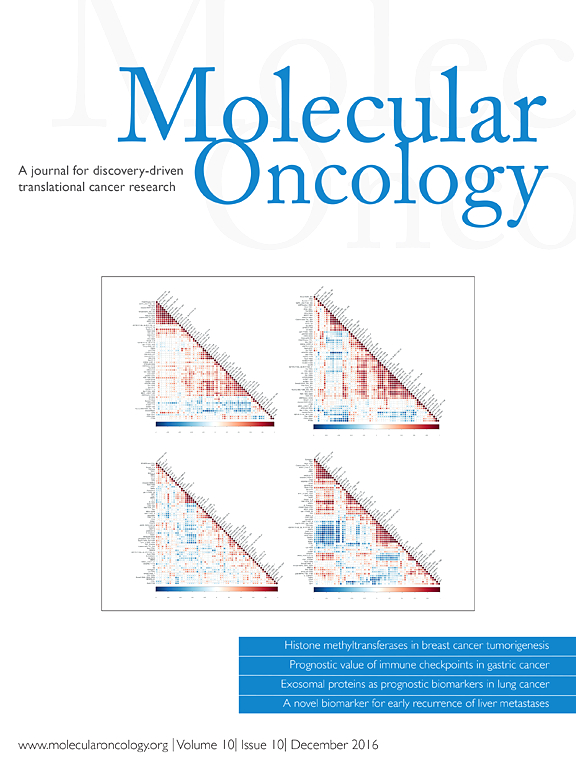不仅仅是一种副产品:V(D)J重组产生的环状DNA分子与b细胞白血病的预后不良有关。
IF 4.5
2区 医学
Q1 Biochemistry, Genetics and Molecular Biology
引用次数: 0
摘要
切除的信号圈(ESC)是T细胞和b细胞成熟过程中产生的环状DNA分子。以前被认为是生物惰性的,Gao等人最近的研究表明,ESCs可以在健康淋巴细胞中复制和积累。此外,作者将高水平的ESCs与b细胞白血病患者复发风险增加联系起来,并提出这种现象是由于ESCs诱导基因组不稳定的独特能力。本文章由计算机程序翻译,如有差异,请以英文原文为准。
Not just a by-product: circular DNA molecules derived from V(D)J recombination are linked to worse prognosis in B-cell leukemia.
Excised signal circles (ESC) are circular DNA molecules generated during T- and B-cell maturation. Previously considered biologically inert, recent work by Gao et al. now show that ESCs can replicate and accumulate in healthy lymphocytes. Moreover, the authors link higher levels of ESCs to an increased risk of relapse in B-cell leukemia patients and propose that this phenomenon is due to the unique ability of ESCs to induce genome instability.
求助全文
通过发布文献求助,成功后即可免费获取论文全文。
去求助
来源期刊

Molecular Oncology
Biochemistry, Genetics and Molecular Biology-Molecular Medicine
CiteScore
11.80
自引率
1.50%
发文量
203
审稿时长
10 weeks
期刊介绍:
Molecular Oncology highlights new discoveries, approaches, and technical developments, in basic, clinical and discovery-driven translational cancer research. It publishes research articles, reviews (by invitation only), and timely science policy articles.
The journal is now fully Open Access with all articles published over the past 10 years freely available.
 求助内容:
求助内容: 应助结果提醒方式:
应助结果提醒方式:


